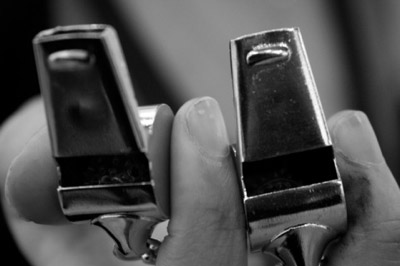|
Listen to this Article
|
Whistleblower has become a bit of a buzzword in recent years. Thanks in part to household names like Bradley Manning and Edward Snowden, the word is hardly reserved to the legal profession. As such phenomenons often go, the infusion of such terms and ideas in to popular culture – frequently made manifest through movies, books and television series – can often have a diluting effect on their meaning.

In recent years, I have noticed the makings of a similar phenomenon in the area of whistleblower claims. The term now conjures the stuff of national security scandals and global geopolitics. While the extent of its impact on the jury pool is unknown, the increased popularity of whistleblowers in news and entertainment media suggest that such an impact is hardly far-fetched. Accordingly, many individuals – whom whistleblower statutes are created to protect – risk having their bravery overlooked for failing to fit the seemingly sexy but ultimately narrow image with which popular media has chosen synonymize the term.
It is not at all uncommon for one to have a dualistic view of the legal and entertainment worlds. While the concept of criminal forensics and whistleblowers emerging from the legal profession and becoming popular movie and television themes is readily perceived, the inverse is far more subtle and easily disregarded as far-fetched. Given its technical nature and deliberate processes, it might be difficult to see how the law might be so readily influenced by popular culture. However, a closer look reveals that these spheres of life are hardly insulated from each other.
The supposed scope of our democratic process is frequently relegated to the idea of lawmaking and enforcement through elected officials. While these representative forms of democracy are no doubt important, they are hardly the most direct. The truth is that ordinary people have the most direct impact on the scope and application of the law in our courts. The constitutional right to a jury trial not only serves to insulate the parties involved from the arbitrary and capricious rulings of an unsympathetic judge, but it provides ordinary citizens with the final say as to how the law applies in a given situation. In fact, the legal authority afforded to an individual juror arguably makes it the most powerful component of our democratic process.
It is precisely this capacity of the ordinary citizen to wield the weight of the law that makes fallacious the dualistic mindset mentioned above. Law and popular culture do not operate in distinct vacuums, each immune from the impressions of the other. To the contrary, they are regularly interacting with each other. Our jury system makes certain of this. As a result of this cross-pollination, the law is in a constant state of flux, changing in its application even as statutes and caselaw remain static.
This phenomenon is hardly an inherent evil. To be sure, it ensures a degree of empathy in law enforcement that even the strictest of statutory construction cannot overcome. On the other hand, as shown above, this interaction creates perceptions that can often be misguided. Similar to the phenomenon with criminal forensics caused by the upswing in crime dramas, the romanticization of whistleblowers can cause those whom the law was made to protect to appear less deserving.
While those who blow the lid off corporate fraud and government secrecy undoubtedly fall within this category, the legal scope for whistleblower protection is hardly so narrow. Those who complain about managers harassing coworkers, disparate hiring practices, and illegal policies about rest and meal breaks are equally deserving of that classification. Even though most of them will never make headline news or be the subject of a popular new television series, they are still whistleblowers. For the law to treat them as anything less would be tragic.


